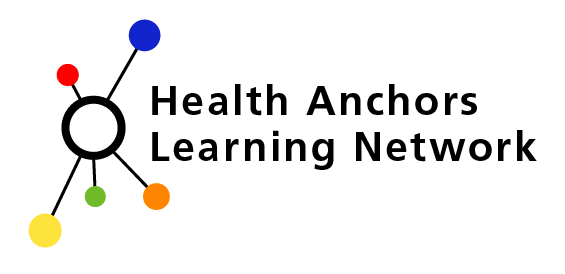How can I get involved?
Whether you’re new to anchor initiatives or you’ve been delivering your anchor work for a while, there are a range of learning activities for you to join and contribute to. You can stay in the loop about what’s happening by signing up to our newsletter.
All activities are free of charge, and open to all unless stated otherwise. These activities include:
Events: Join webinars and interactive workshops where you can hear from experts in health and care and other sectors, and share your experience and learning with other participants.
Learning set: Meet with a small group of peers to share ideas on how to develop a framework for your anchor work.
Share examples of your anchor work: Help us gather examples of anchor work that is happening all over the UK, whether you have stories of successes or failure.
Online discussion forum: Connect with people who share your interests. Share your learning and get advice and support from other network participants.
Resources: Access and contribute to our crowdsourced library of reports, toolkits and information about anchor institutions.
The network is designed to grow around the needs of its participants. We invite you to highlight topics of interest and share your ideas by getting in touch with us on hello@haln.org.uk.
What can I expect to learn?
At the start, the network will focus its learning activities on these topics:
Developing an anchor mission and getting started
Common anchor strategies including:
Employment and skills
Spend and procurement
Using buildings and spaces to support communities
Reducing environmental impact
Working in partnership
We expect the learning to emerge in a number of ways. Firstly, peer learning is at the heart of the network, and we encourage all participants to share their expertise and experiences. In addition, participants will learn from external expertise such as subject matter experts, participants from other sectors and from building on existing evidence
Learning from all network activities will be collated and synthesised into learning products (e.g. blog posts, briefings, and frameworks) that summarise learning for participants and others to use.
As well as capturing learning from specific network activities, we will also be regularly synthesising learning on wider questions that cut across all topics and activities. For example:
What is the role of leaders in developing and promoting an anchor mission?
How can we measure the impact of anchor activity?
What are the system conditions that enable anchor action?
This wider synthesis will bring together different strands of learning to help inform participant’s, other networks’ and wider system stakeholders’ broader understanding of anchors and the role this work can play in improving health outcomes and reducing health inequalities.
